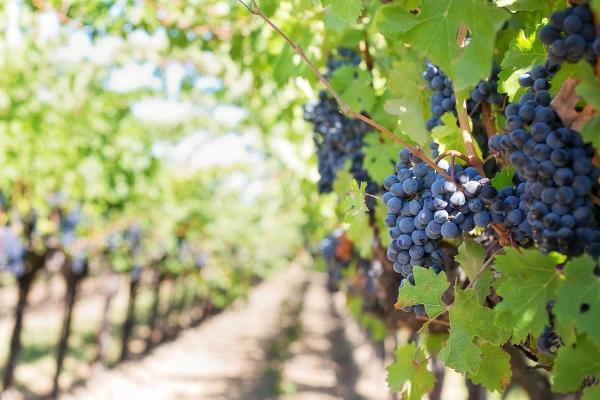Sustainability in the Wine Industry
- June 14 2022
- 3 min read
Sustainability in the Wine Industry

In recent years, we’ve seen a shift toward sustainability in the wine industry. Eco-friendly farming practices have gained popularity, and there's been a growth in the sales of organic or biodynamic wines from this.
We’ve come a long way from the humble beginnings of the wine industry and vineyards haven’t managed to avoid being swept up in the expansion of intensive farming.
How does intensive farming impact the environment?
The industrial revolution gave us tools to farm the land on a scale previously unseen in human history. Intensive farming grew rapidly. With little care for sustainability of the earth, it kept expenses low, hiked profits, and helped meet increasing consumer demand. This has reduced biodiversity across the globe, and is causing potentially irreparable degradation of our soil.
The wine industry widely employs harmful chemicals such as pesticides to maximize harvests. Such chemicals affect not only the crop, but also negatively impact the ecosystem through contamination of water supplies and soil. These pesticides, fungicides and herbicides are also toxic to insects, birds and fish, as well as having links to human health issues such as cancer.
With this in mind, it’s safe to say that using less chemicals is better for both people and the environment.
What is wine sustainability?
To identify which wine companies are shifting toward sustainable practices, we need to understand the terms used in their branding.
- Organic wine
This means no chemicals are used in the growing process (e.g. pesticides, fungicides, or chemical fertilizers).
- Biodynamic wine
This wine is not only organic, but shows the vineyard is more caring toward the wider ecosystem. They use sustainable farming practices where soil treatment and water/energy conservation are concerned.
There is more to wine sustainability than just ensuring the farming practices are eco-friendly. This includes every part of the process, including:
- Growing and making the wine
- Being socially responsible toward neighboring communities
- Providing fair treatment and pay to employees
- Using sustainable packaging
Employing sustainable wine practices means the industry can continue to thrive for generations to come, whilst still producing wine on a large scale. It also helps preserve the identity of the wine, reconnecting the industry with the roots of this labor of love.
Carrying sustainability through to the point of purchase and beyond
Taking a holistic approach to wine sustainability means responsible practices need to be in place all the way to the point of purchase. Companies can do this through seeking sustainable options for materials used at the consumer-facing end of the process.
Wine brands employing sustainable practices will see their expenses increased. Companies can help reduce overall costs through ordering wholesale eco-friendly reusable wine bags. If looked after correctly, reusable wine bags will last for years. This allows consumers to reduce their impact on the environment.
Custom wine totes that are reusable and display a business’ logo will provide consumers with regular reminders of the company. This encourages them to return to the same retailer for their wine purchases.
Gain access to Orders, Tracking, Custom Options and Much More!